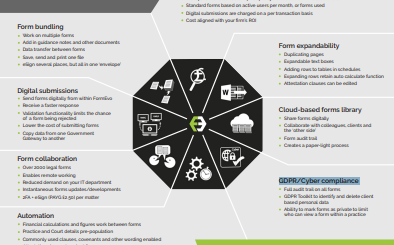Back to basics – a Business Briefing for Lawyers: Managing Performance

Welcome to the latest edition of Back to Basics — a Business Briefing for Lawyers. This month the focus is on Managing Performance. It is essential that every firm has a range of Performance Management tools—not only of a financial nature (although those are very important) – but more wide ranging.
Armed with these tools, firms will be able to make decisions based on factual foundations rather than on “gut feelings” or “instinct” which, sadly, can prove disastrous. We will touch on just some of those tools in this month’s Briefing. You should not only check your performance for the current month but also over a period of time to help you gain an understanding of the way your business is working and what trends there are that are affecting it. If you need any help in creating systems or tools to assess your performance, please get in touch with me—I’d be delighted to help.
Performance Managing
You see them vying for victory every week during the F1 season – trying to improve their performance week on week. They try things to see if they work, and if they do, they keep them and if they don’t they discard them and try something different. The whole team knows what it’s trying to achieve and they all have a part to play. They measure everything that goes on because they know that by doing that they will find ways of improving that will help them win the race. In your business, there is no difference between what they do in Formula 1 to what you need to do.
Every business needs to have a range of Performance Measurements against which it can test its progress. There are the obvious financial measurements in the form on budgets and projections which you can compare to actual results. You can measure the number of new cases that you opened this week, month or year against the same period last year. You can count the number of new clients that you’ve taken on— and where they came from. Are your Sources of Business continuing to perform as you expected them to? You must identify the information that is important to you and once you to that you must check your progress against that. Are you going to make the effort to improve week on week or are you just in the race to make up the numbers?
If you can’t measure it you can’t manage it!
It’s well known in the world of management that you can’t manage something if you can’t see it—and if you don’t set any performance measurements then there’s nothing to see. It is an essential element of running any business to set performance measurements. Without these you will have no accurate idea of how your business is doing. Simply relying on the bottom line in your bank balance will not give you a very good idea of which parts of your business are performing well and which are performing badly. To do this you need to introduce a range of performance measurements. There need not be a huge range of measurements—but you do need some. As I mentioned earlier, it is prudent to have a range of financial measurements. You really should set out a budget for your financial year (and if you’re part of the way through the financial year and haven’t set a budget—set one for the remainder of the year). Every month you should compare how you’ve done against your budget. You should look at which areas performed well and which areas performed badly—and, in each case, work out why. You should also benchmark your results against the Cost of Time Survey conducted by The Law Society. You will find a range of Financial Ratios in that Report against which you can test your own results.
If you are intent on growing your business profitably, you will be interested in where your new clients are coming from and to compare how many new cases are created by new clients against the number of new cases generated by existing clients. A monthly Source of Business report is a good barometer as to whether you have solid connections that supply you with new cases month after month—and whether a once successful Source of Business is now in decline.
Reading rows and rows of numbers can be difficult and don’t necessarily help you to spot trends. Try putting the resulting into a Chart to compare your projections against your actual results or, in the case of Source of Business Reports consider establishing trends over a period of time to see if there is an improvement or decline from your various sources of business. As can be seen from this chart, existing clients and client referrals are performing well, referrals from the firm’s Web site are increasing month on month, Yellow Pages produces a very small number of cases and might not be worth the money and there is a declining trend in IFA Referral work. This assists you in making decision about which areas you should focus on for growth.
Simon says…..
If I was a budding Olympian (I wish!) then the term performance management would be an oft used phrase. If I was CEO of an FTSE company it would be part of the furniture. So is it something only associated with participants that are at the peak of their chosen field, or, is it something to do with how you attain the heights of capability. The above have teams of dedicated people to measure, analyse and report, which of course isn’t the case for your average law firm in Scotland. Having said that, I reckon you only need the teams of experts if you are trying to win a medal or keep investors happy. The average law firm in Scotland can be informed about its performance much more easily – simply use modern Practice Management software that takes a holistic approach to the firm rather than just the Cashroom.
The most common tool to measure a law firm’s performance is probably the cash accounting system. Unfortunately far too many cash accounting systems were designed for cashiers to use, which means they pander to the needs of the few rather than the needs of the many. Compliance isn’t difficult to achieve and it’s certainly not an aspect to be feared or shrouded in ignorance. Any decent Practice Management System (PMS) will make Compliance transparent to all and automatically alert Partners as to how Anti –Money Laundering and Cash is performing – and, it will show you how your Fees Rendered and Fees Recovered are performing – although don’t be one of those people that think Fees Rendered is the goal; it isn’t – only Fees Recovered (i.e. cash in your bank account) is of practical use to today’s law firms. A good PMS will reveal how quickly you fee (by Work Type, by Partner, by Department) and how quickly you get paid; by revealing the number of days it takes to be paid – then starts you thinking about how you can reduce it. It will also show you any clients with a £500+ credit balance — and show you any clients with a Credit Balance and Fees Outstanding if your Terms of Business says you can take a fee if sufficient client’s funds are available, then call client and let them know you are taking it. If your Terms of Business doesn’t say this – change it. If you are currently using the Bank Statement as your primary performance management tool, then have a look at a modern Practice Management System; you will get a very pleasant surprise if you do. You may be one of those that waits for the accountant to tell you what’s what after the financial year end. The difficulty with this is that by the time you find out there’s a problem; it’s too late to do anything to improve things in the relevant financial year.
Many firms are trading on an overdraft, in which case the bank has probably taken a proactive role as far as reporting is concerned – in many cases this was because the firm itself wasn’t proactive. However, don’t simply be feeding the bank with what it wants to know; understand how good your business development is – report on new clients introduced and new instructions received as these are the things that will feed through into your cash figures in due course. Understand the dynamics of your business: what number of cases lead to what level of income, what are the overheads and expenses that underpin which levels of work type; How are they performing? Is a good question. How can they perform better? I would suggest is the goal.
Fee Earner Performance
Because of the nature of legal firms, it is very important that Fee Earners have their performance measured. In many instances Solicitors are not only the owners and managers of the business, they are also the prime producers of the firm’s income through the work they carry out to generate fee revenue. You should consider measuring the number of cases a fee earner is dealing with at any given time, when it is likely that these cases will generate an income—and how much. You will be interested in the number of fees the Fee Earner renders each month and, most importantly, the number of fees the Fee Earner recovers each month. You can look at the averages of both the number of fees raised each month as well as the average value of fees rendered and recovered and by doing do make a reasonable projection of how much a Fee Earner is likely to generate over a future period.
You can also test what the effect would be of either increasing the average number of fees raised or the average value per fee (or both) or, more worrying, what the impact of a decrease in either of these figures would lead to. To follow this process to its logical conclusion, you will be able to set costs against the Fee Earner—not just the Fee Earner’s salary but also Employers NI and the share or overhead that is attached to the Fee Earner for use of the office space and systems –and the cost of any secretarial or administrative support. By doing this exercise you will be able to calculate Fee Earner profitability. This is a very useful measurement to help you with your decision making. It may seem from taking a “top line” approach based on the value of Fees Rendered that a particular area of work is valuable to the firm but when you analyse out the cost of that work you may well discover that when the cost of carrying out the work is applied that the profitability is simply not there. This may help you to determine how that can be dealt with or whether the firm should continue to do that particular type of work.
Brian O’Neill LL.B MBA, Business Consultant, t. 01294 833220, m. 07855 838395, e. brian@drakemyre.co.uk
Simon Greig is Sales Manager of LawWare Limited, Edinburgh. Contact Simon on simon@lawware.co.uk








Recent Comments